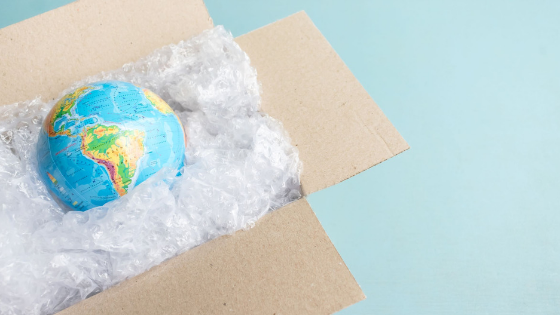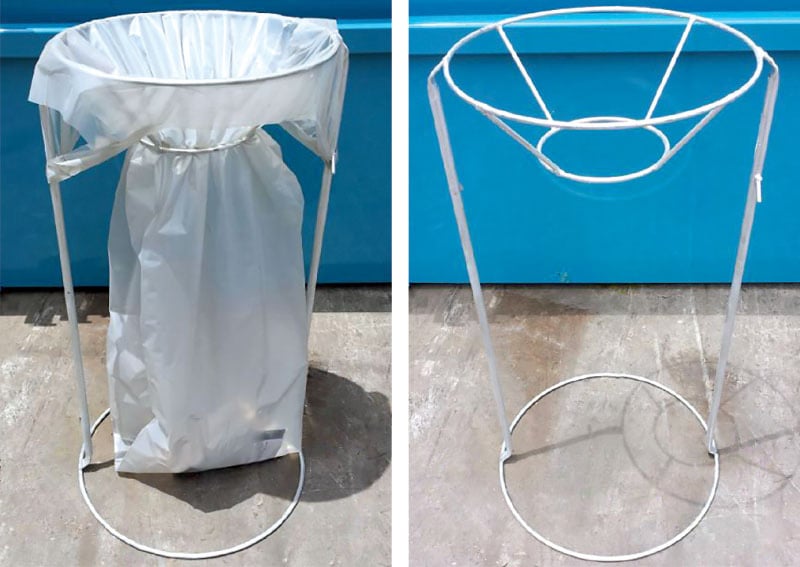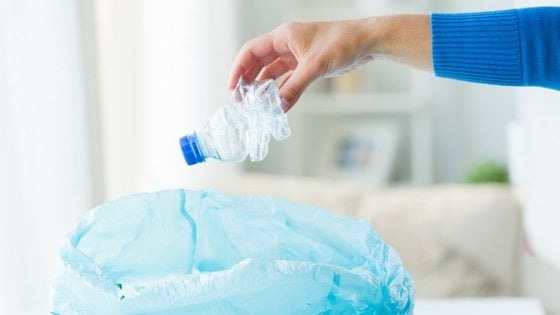
Plastic Bag Recycling: How To Recycle Soft Plastics! 🛍️
Plastic Bag Recycling 🛍️: In commercial waste management, one of the trickiest waste streams to find a solution for is plastic bag recycling. When we say plastic bag recycling, this includes soft plastics such as wrap, cling film and plastic shopping bags as those provided by shops.
So, in today’s blog, we will cover some of the potential solutions for these bags. We will also discover why they should not be included in your commercial commingled recycling bin (the yellow bin).
>Download Now: Free PDF Business Owners Guide To Commingled Recycling Bin Services
Waster offers a real alternative in waste services for small and medium Australian companies. Moreover, we make it super easy to arrange your required garbage collection and recycling bin services. Through our user-friendly online model, you can easily book your services at the click of a button! See below for more information:
Plastic bag recycling: let us cover what you need to know!
When we speak to new customers, they are often surprised and a bit frustrated that plastic bags and soft plastics can not go into their commingled recycling bin (see waste recycling Sydney info). After all, it does seem annoying that there is no better common solution than putting plastic bags (a common item) into general waste bins.

Why can we not use a commingled bin for plastic bag recycling?
Many people think that plastic bags can go in the yellow commingled recycling bin. However, the contents of this bin will be taken to an MRF (material recovery facility).
These facilities are not suitable for separating plastic bags as they can disrupt the system. Another issue arises when bottles and cans are bagged in the bin. This can lead the bin to be marked as “contaminated” and charged as general waste as it will go to landfill.
What is the difference between dark and light plastic?
Talking about soft plastic recycling, did you know that its colour also matters?
There is a huge difference as regards international recycling market demand. Most Aussie recycling is shipped for processing in China. And since 2018, China has really clamped down on the quality of the recycled product they will accept.
Through the Green Sword program, China will only accept higher-grade recycling. This means that China will only accept clear plastic for soft plastic recycling, resource recovery etc.
“In Australia alone, about 619,000 tonnes of materials — worth $523 million — is expected to be impacted by the Chinese ban.”
This means that even for larger soft plastic producers, it will be more and more difficult to recycle plastic wrap if it is not clean and of good quality.
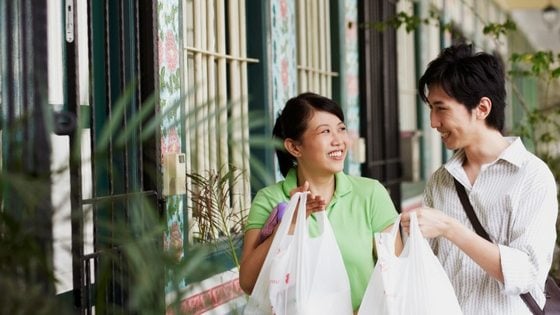
What other options are available for plastic bag recycling?
Important Note: As of 9 November 2022, REDcycle has temporarily put their program on hold.
Thankfully, in lieu of the problem described above, there are a couple of options for plastic bag recycling available. A program called RedCycle lets you dispose of soft plastics in bins positioned in supermarkets such as Coles and Woolworths. You can usually find the bins positioned near the front doors of participating locations. The plastic is recycled into items such as park benches etc. See our blog on plastic bubble wrap.
Plastic is becoming a bigger waste disposal issue every day. As per the RedCycle website, they include items such as:
- Bread, pasta and rice bags
- Cereal box liners
- Biscuit packets
- Frozen food bags
- Ice cream wrappers
- Squeeze pouches
- Plastic sachets
- Bubble wrap
- Cling wrap
- Chocolate and muesli bar wrappers
- Silver-lined chip and cracker packets
- Confectionery bags
- Fresh produce bags
- Netting citrus bags
- Polypropylene bags
- Plastic film from grocery items like nappies and toilet paper
- Courier satchels
- Newspaper and magazine wrap
- Sturdy pet food bags
- Plastic bags from boutique/department stores
- Large sheets of plastic that furniture comes wrapped in (cut into pieces the size of an A3 sheet of paper first)
Bans on plastic bags: a stronger solution than recycling
Another step that many countries have moved towards to help plastic bag recycling solutions is to charge a fee for plastic bags when you shop. This has operated in countries such as Ireland for many years and has had a great impact.
As per the ABC – “Single-use plastic bags are banned in South Australia, Tasmania, the Northern Territory and the Australian Capital Territory, while Western Australia and Queensland laws will come into effect next year.” This change will also be implemented in Victoria.
As with many things recycling-related, plastic bags are tricky and prevention is better than cure. There are options available for high-quality clear soft plastic and other plastics that can be brought to a RedCycle location.
See our blog on the introduction of a ban on single-use plastics.
We should also get behind our State Governments and lobby for legislation to reduce the number of single-use bags also!
See our blog on what damage can be caused by simple drinking straws in business recycling. Also, see our blog on whether we will even need rubbish removed in the future.
Single-use plastic bag recycling: adjusting
We have been talking about plastic bag waste in many of our blogs, due to the sheer volume of single-use plastics ending up in landfill or in our environment like rivers and oceans without much recycling efforts until recently.
20 June 2018 was a momentous day as major national supermarket chains no longer offer single-use plastic shopping bags to customers. This is expected to have a huge impact on plastic bag waste in Australia.
In this part of the blog, we will look at some of the facts and figures around this decision.
Why is this happening now?
Following a nationwide campaign and raised awareness due to TV shows like War On Waste – major supermarket chains such as Coles and Woolworths will be ending plastic bag waste from 1 July.
Woolworths brought this date forward to 20 June 2018.
Does it apply all across Australia at the same time?
In fact, these single-use bags have already been banned in Tasmania, South Australia, the ACT and Northern Territory.
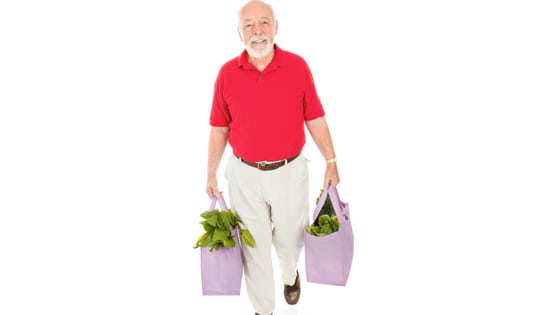
9news reports that “Queensland and Western Australia will ban single-use bags on July 1, but no law is in place in New South Wales.”
Retailers found to be supplying the banned bags face a $6,300 fine.
Has it been done elsewhere and what was the impact?
Plastic bag bans have been in place in various Aussie states and also in countries such as the UK and Ireland for numerous years. See our blog on recycling bubble wrap.
It has been estimated that this can reduce plastic bag waste by up to 85%.
How much plastic bag waste are we talking about?
In simple terms, the number of bags is absolutely incredible.
Woolworths alone is believed to have provided c. 3.2 billion plastic bags to customers per annum in recent years.
You read that right – per annum! When you think that the population of Australia in 2020 is 24 million, that is roughly 135 bags for every person including children from Woolies alone!
Can you recycle plastic bags?
The answer is yes. You can recycle soft plastic bags! You can also bring your bags and soft plastic bags to RedCycle locations – in most Coles and Woolworths centres and they will recycle them for you.
Another strong option is now available in Melbourne. This plastic recycling company, called Replas, is “Australia’s leading mixed recycled plastic manufacturer that aims to provide a solution for plastic waste by delivering quality cost effective sustainable products. The company produces a range of over 200 recycled plastic products in Australia using state-of-the-art machinery and robotics together with a focus on energy and efficiency. The product range includes bollards, decking, fencing, fitness trails and furniture as well as products suitable for traffic control, parks, gardens and the utility industry.”
They make all types of products by recycling plastic products – including plastic bags – by using their state-of-the-art technology. In addition, they have partnered with companies such as Redgroup to collect plastics through Coles and Woolworths.
Will it be difficult for shoppers to adjust to the new regime?
It will take a bit of effort and consumers are being advised to be prepared – not to blame the shop assistants. In recent years, retail employees have been receiving increasing levels of abuse.
Retail employees union SDA has launched its “Don’t Bag Retail Staff” campaign to coincide with the ban.
ABC reports that:
“QUT Business School Associate Professor Gary Mortimer said it took between six to 12 weeks for consumers to break a habit.
“There needs to be a motivation to break that habit, so you need to be passionate about it,” Professor Mortimer said.”
What other options will consumers have for their bags?
Channel 9 explains:
“The supermarkets will be offering a range of options, including thicker, sturdier plastic bags for 15c each. The costs will soon add up if you buy them every time you shop.
“More long-lasting options are also available – and more expensive.
“Coles is offering a shoulder bag, a chiller bag, a tote and a jute bag, all priced between $1 and $3. Woolworths also has a tote bag for 99c and a cool bag for $2.49.
“Coles says its bags are made from a range of material including cotton/jute, polypropylene and LDPE/LLDPE.”
Next steps
One of the big next steps we would all like to see in supermarkets reducing or even removing plastic packaging from their shopping aisles.
At the end of the day, it would seem silly to remove plastic bag waste – but buying bananas wrapped in plastic, who would really want that? See our blog on how long plastic takes to decompose. Also, check out our blog on can you recycle nappies in Australia.

At Waster, one of the most common types of questions we get from both potential and existing customers are related to soft plastic recycling and whether you can recycle plastic wrap commercially in Australia. This soft plastic recycling can cover everything from plastic bags in small quantities to huge amounts of used plastic wrap at, say, a shipping or distribution business.
Soft plastic wrap of various types is used in a huge variety of companies. Some people enquire for real cost-saving purposes vs. others who really focus on the environmental aspect.
In this part of the blog, we will seek to answer some of those questions and explain some of the nuances around the issues.
Who is this Waster that keeps talking about plastic bag recycling?
Good question! Waster is a real change in the Australian waste and recycling industry – from bin collections for general waste to all types of recycling.
For too long the industry was dominated by big players who were happy to dump at landfill and keep prices high. Waster is different. We are focused on small and medium companies and put a real focus on helping you boost recycling.
We will be honest, recycling is a bit tough in Australia. Sometimes, it is not all it is cracked up to be. However, there are still lots of easy and cost-saving recycling options available. We try to inform customers and the general public as much as possible about what recycling is really capable of doing and what it is not!
We are actually the only Aussie waste management company that collects real reviews from our customers, also.
So, is soft plastic recycling possible in Australia?
The answer so often is yes and no. But first, we have to go into a bit of detail about the recycling industry and also how plastic is recycled.
Can all plastic be recycled?
The answer to this question needs to be considered when we think about soft plastic recycling. In one way or another, nearly all plastics can be “recycled” to some extent.
However, they need to be separated, collected and brought to a facility for you to ensure that soft plastic bags – along with other plastic products – recycling happens. They also need commercial viability (i.e., someone to actually use the recycled product created). If one of these falls down, the item will not be recycled.
Soft plastic – plastic bag included – recycling in Australia faces all of these issues above.
Check out our blog on microplastics in teabags.
- Separating soft plastic from other rubbish. In many instances, this does not occur very well. The vast majority of soft plastics such as bags etc. end up in general waste bins – and from there they almost always go to landfill.
- Limited volumes in any one place – most people and companies only have very small volumes for soft plastic wrap recycling – i.e. not enough to really warrant an additional collection service.
- Soft plastic wrap is often made of very low-grade plastic. As a rule of thumb plastic (at the best of times) can be recycled no more than 10 times. Every time it is recycled – the polymers weaken and more and more new “virgin” plastic is added to the mix.
- No actual taker of the recycled product – if the plastic is recycled into a very low-grade product – there may actually be no one to take it and use it for manufacturing. This issue is compounded by the long-term decline in manufacturing in Australia.
So now we have looked at the background of what is actually possible for soft plastic recycling.
Recycling clean and clear soft plastic wrap: is it possible like plastic bags?
Clean and clear soft plastic wrap is the easiest to recycle option. This would be used, say, in a transport or packaging business, where there are large amounts of clear/see-through plastic cling wrap (plastic bale wrap recycling).
The most common solution in this instance is to provide a bale frame and bale bag collection process.
The employees on site will place the clean and clear plastic wrap into the bale bags, which will be collected on a scheduled service.
Recycling of dark soft plastic bags
Last 2020, due to the ongoing recycling crisis – which is impacting more and more businesses (see news article here). There is currently no available commercial solution for recycling dark plastics that Waster can provide to our customers.
Unfortunately, this means that dark plastic wrap is ending up in general waste. In certain cities, there is a dry general waste service available, where general waste can be diverted from landfill and used to create alternative fuel. Speak to our customer service team about this option.

Recycling of plastic bags and smaller amounts of soft plastic wrap
The best solution for households and small amounts of plastic wrap is using the RedCycle service in Australian supermarkets such as Coles and Woolworths.
This service uses soft plastics to make items such as plastic flooring, insulation or park furniture – that is generally donated to parks and charities
Conclusion on your options for soft plastic shrink wrap/bag recycling
Due to a combination of the ongoing recycling crisis and also the inherent difficulties in recycling low-grade plastic wrap – some thought needs to go into your soft plastic recycling to get the best outcome.
Speak to Waster if you have any questions and we will do our best to provide you with all the available info.
For more informative blogs, see our recent article on used cooking oil recycling.
Leave a Reply Cancel reply


